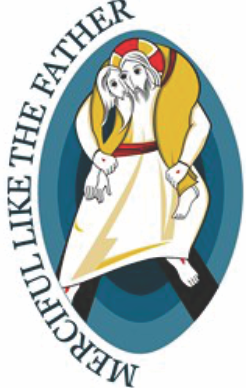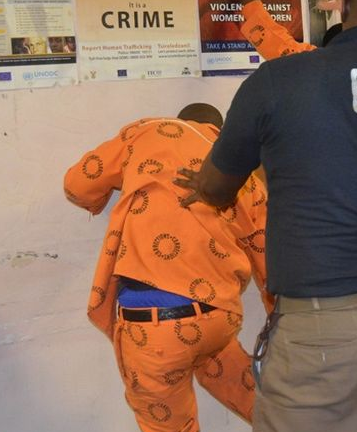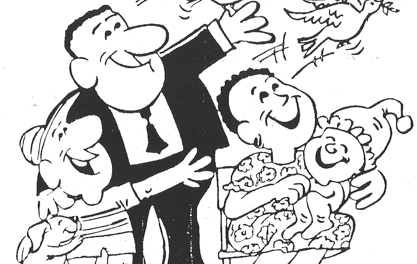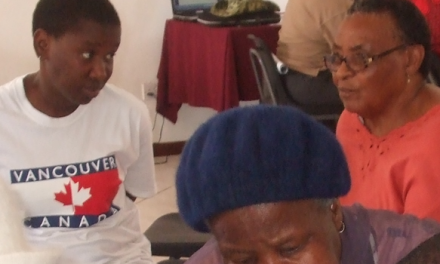
What is it in me that reacts so violently to this concept, “rot in jail.?” Is it just a way of speaking? Sadly, we hear it quite often and mostly in response to really gruesome crimes that are almost inexplicable. Dismembering someone, beating someone to death, beheading, holding one’s foot on a person’s neck until they can’t breathe, killing someone mainly because they are different to you or you hold a different political viewpoint? Can and do normal people commit such gruesome crimes? The answer is yes, and punishment and retribution are deserved. But saying, “let him rot in jail for the rest of his life?” Is that an attitude of unforgiveness, and can it really be that permanent?
I tweeted my response “No one should rot in jail forever” to a tweet of that statement of Communist Party P leader Blade Nzimande. Jail is now known as a correctional facility and the modern concept of punishment is ideally restorative justice, i.e. “a system of criminal justice which focuses on the rehabilitation of offenders through reconciliation with victims and the community at large.” Is that always possible or are there persons so depraved that they cannot be brought to being reconciled. In the book I’m reading, Michener’s ‘THE SOURCE, I came across this explanation for why those faced with horrific torture and death by the 16th century INQUISITION in the Church were able to stay silent. The answer given was to protect someone else’s life, possibly a friend or neighbour. In other words, Love of neighbour, incredible love.
We, South Africans, are well aware that Janusz Wallus shot and killed SACP leader Chris Hani in April 1993, and has been refused parole on a number of occasions and remains “rotting in jail” because he has not been willing to “tell the whole truth” and disclose names of accomplices. After all these years would forgiveness not be an option? An option that could possibly be healing of a long-held hurt or grievance. Would the same apply in the case of Jews and Nazis, Boer and Brit, Xhosa and Zulu, slave owners and slaves, or in any number of crimes against humanity?

Just days ago we celebrated DIVINE MERCY SUNDAY which led me to express this thought as MARFAM’S DAILY THOUGHT for April 14: “The group leaders were reflecting on the progress that had been made in promoting faith sharing especially in families over the years. Octavia commented, “I can hardly believe that it is 5 years since we celebrated the Year of Mercy and started a study of Pope Francis’ special document, Jesus, the Face of the Father’s Mercy. Mercy is still a very difficult concept for me, especially God’s mercy, in the context of ‘Do not judge.’
Scripture 14 April: Jesus said to Nicodemus, ”God so loved the world that he gave his only-begotten Son, that whoever believes in him should not perish but have eternal life. For God sent the Son into the world not to condemn the world, but that the world might be saved through him. John 3:16-21. Pope Francis: Forgiving does not mean forgetting. In the face of a reality that can in no way be denied, relativised or concealed, forgiveness is still possible. In the face of an action that can never be tolerated, justified or excused, we can still forgive. Free and heartfelt forgiveness is something noble, a reflection of God’s own infinite ability to forgive. Fratelli Tutti 250. Reflect, share, pray for courage and openness to forgive something that is still burdening you.
Taking the issue further, in a section of Fratelli Tutti headed “The Art and Architecture of Peace,” Pope Francis uses the example of family life. “Working to overcome our divisions without losing our identity as individuals presumes that a basic sense of belonging is present. In a family, parents, grandparents and children all feel at home. If someone has a problem, even a serious one, even if he brought it upon himself, the rest of the family comes to his assistance; they support him. His problems are theirs. In families everyone contributes to the common purpose; everyone works for the common good, not denying each person’s individuality but encouraging and supporting it. They may quarrel, but there is something that does not change: the family bond. Family disputes are always resolved afterwards. That is what it means to be a family! If only we could view our political opponents or neighbours in the same way that we view our children or our spouse, mother or father! How good would this be! Do we love our society or is it still something remoted, something anonymous that does not involve us, something to which we are not committed? FT230.
In THE FACE OF MERCY 9 Pope Francis writes, “Jesus affirms that mercy is not only an action of the Father, it becomes a criterion for ascertaining who his true children are. We are called to show mercy because mercy has first been shown to us. Pardoning offences becomes the clearest expression of merciful love and an imperative from which we Christians cannot excuse ourselves.
Do you agree that forgiveness is always possible and that families should be a model for social friendship? Should anyone rot in jail forever? And can or will that ultimately heal the pain of those who suffer? FAMILY WEEKLY APRIL 14 2021








Recent Comments